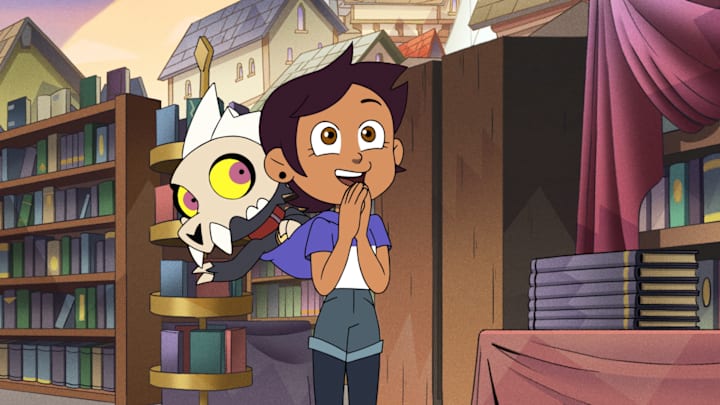There has been a lot of progress over the last two decades when it comes to "representation" in media. And we've come an even longer way since the many decades that preceded these. But every time disabled, LGBTQ+, or other underrepresented fans respond to "wins" in media with "good, now do more," we're met with the same pushback: "Can't you be happy with what you got? Isn't it enough?"
This is, of course, the epitome of the concept of tolerance where minorities are concerned. Tolerance is not acceptance. They'll tolerate one gay character in their mega-franchise blockbuster release as long as it's implied, they don't have to "see anything," and, let's not forget the final third of the trifecta: the character dies at the end.
So why, even when we "win," do we keep demanding more? A fair question, and one I might have asked 10 years ago at the height of my denial about who I was as a person. It's actually not as complicated as you might think. Yes, celebrating "wins" is warranted. I like to live by the "see and cheer" philosophy in my viewing experiences. I cheered earlier this year when Vel and Cinta finally kissed in Andor. And then one of them died, and well, I've already gone on that journey of acceptance, believe it or not.
But that's not enough. Because if it were, the straight white men running Hollywood would stop there. They might even try to get away with easing back on the "wokeness" they're so fond of criticizing. They do that anyway already. I'll repeat what many before me have said: I want to see myself in the world's biggest, top-earning, highest-rated movies. Not one time, not for a few scenes, not for a good time and not a long time (see: Cinta and Vel). Many times. Over and over. I want to exist in movies and TV the same way the straight women I thought I had a lot in common with in my 20s do, in a lot of movies and TV, all year round, every single year.
We ask for more because many of us still aren't represented well in these stories, or aren't represented authentically. Not every bisexual woman is on the hunt for anyone she can find, mostly women, but why not open yourself up to more options -- but that's what you'd believe just from watching such characters on TV. Not everyone's coming out experience is particularly noteworthy. And don't even get me started on how disabilities of all kinds are portrayed disgracefully in media, still, in 2025. I could go on, but I'm not here to speak to experiences I haven't lived.
Everyone deserves to see themselves portrayed on screen -- often, accurately, and respectfully. Everyone deserves to see characters living their experiences, but also living successful, happy, fulfilling lives. Everyone. Not just white men, or straight women, or people with visible disabilities. Every single person deserves to feel seen, heard, and understood -- to have their stories not only told, but celebrated.
If you disagree with that, maybe take a second to ask yourself why you resist the idea that everyone should be celebrated. You might learn something about yourself.
